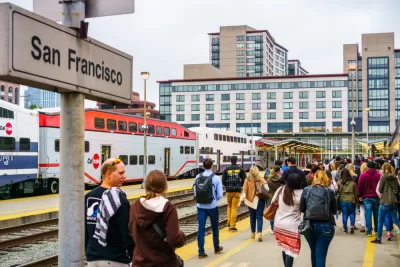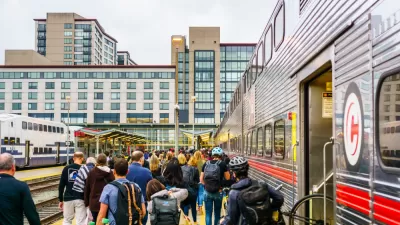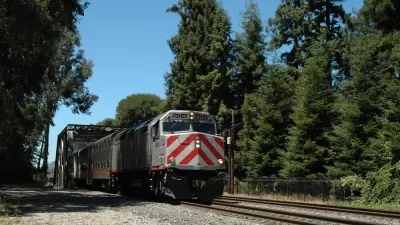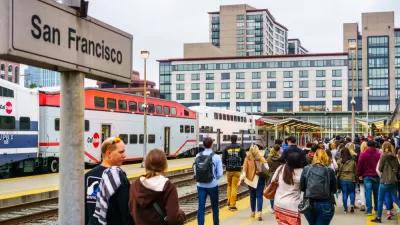The saga of the three-county sales tax upon which the future of Caltrain depends is now in the hands of voters.

"San Francisco's Board of Supervisors unanimously approved an eighth-cent sales tax measure for the November to fund Caltrain during a special meeting Friday -- the last day to place the measure on the county ballots," reports Daniel Montes.
The decision culminates weeks of political back and forth as political leaders from San Francisco, Santa Clara, and San Mateo counties held the sales tax measure as leverage in a battle over governance of the commuter rail system.
San Francisco and Santa Clara officials in July approved a version of the sales tax that San Mateo officials called dead on arrival. This latest version of the sales tax measure, with governance issues stripped from the measure that will appear before voters in November, came in just under the wire, and could save the beleaguered rail system. Earlier in July, the San Francisco County Supervisors rejected a version of the ballot measure approved by San Mateo county officials.
"If ultimately approved by two thirds of voters across San Francisco, San Mateo and Santa Clara counties, the tax would generate an estimated $108 million annually. The funding is desperately needed to operate the system as ridership has plummeted during the COVID-19 pandemic," according to Montes.
More than providing a lifeline during the diminished ridership of the pandemic, the sales tax measure is also intended to fund a major expansion of service on Caltrain, designed to be commensurate with existing service on the other regional transit system serving the San Francisco Bay Area—BART.
FULL STORY: Caltrain sales tax to be placed on November ballot after SF Supervisors pass measure

Planetizen Federal Action Tracker
A weekly monitor of how Trump’s orders and actions are impacting planners and planning in America.

Maui's Vacation Rental Debate Turns Ugly
Verbal attacks, misinformation campaigns and fistfights plague a high-stakes debate to convert thousands of vacation rentals into long-term housing.

Restaurant Patios Were a Pandemic Win — Why Were They so Hard to Keep?
Social distancing requirements and changes in travel patterns prompted cities to pilot new uses for street and sidewalk space. Then it got complicated.

In California Battle of Housing vs. Environment, Housing Just Won
A new state law significantly limits the power of CEQA, an environmental review law that served as a powerful tool for blocking new development.

Boulder Eliminates Parking Minimums Citywide
Officials estimate the cost of building a single underground parking space at up to $100,000.

Orange County, Florida Adopts Largest US “Sprawl Repair” Code
The ‘Orange Code’ seeks to rectify decades of sprawl-inducing, car-oriented development.
Urban Design for Planners 1: Software Tools
This six-course series explores essential urban design concepts using open source software and equips planners with the tools they need to participate fully in the urban design process.
Planning for Universal Design
Learn the tools for implementing Universal Design in planning regulations.
Heyer Gruel & Associates PA
JM Goldson LLC
Custer County Colorado
City of Camden Redevelopment Agency
City of Astoria
Transportation Research & Education Center (TREC) at Portland State University
Jefferson Parish Government
Camden Redevelopment Agency
City of Claremont





























